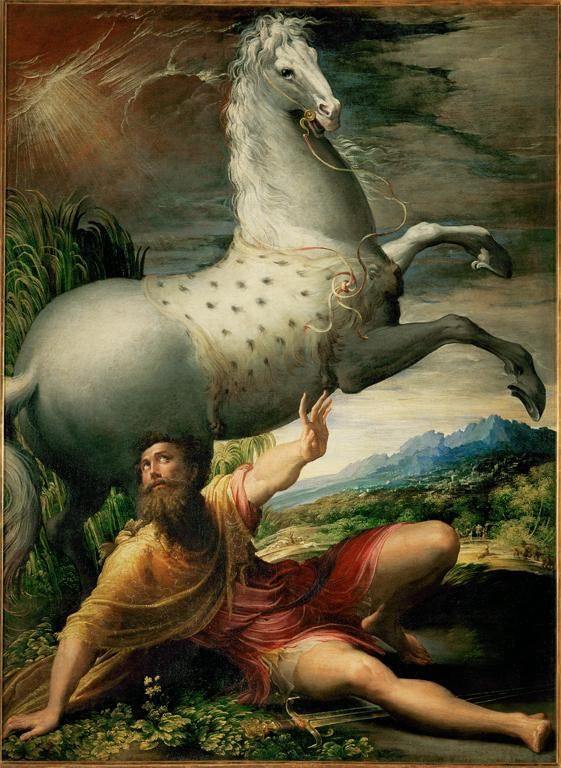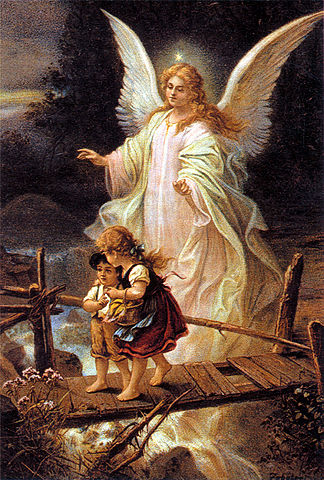Since middle-school, I had been very fond of swimming, particularly racing. I prided myself on being the fastest free-style and backstroke swimmer on the team, and winning first place in races was a common occurrence. One meet, however, the coaches had signed me up for my usual free-style and backstroke events, but also on my list of race events was the butterfly stroke race. This was a problem: I had never swam butterfly.
Sure, we had done some practice with it, but I never possessed the proper coordination to make it more than a few meters before I was doggie-paddling. I approached the starting blocks, shaken with fear of not only losing the race, but possibly not even finishing. Silently, I prayed to God that I should at least finish the race, let alone not drown in my attempt.
I not only finished, but I earned first place. It's difficult to convince anyone that the occurrence of this result was a miracle, but to me, it's profoundly clear that it was. Whatever grace I received was accompanied by the unsettling fear of failure before and a consequently very sore and worn-out body afterwards. In this instance, God's grace had been a painful experience.
 |
| "The Calling of the Apostles Peter and Andrew" by Duccio di Buoninsegna |
Today's gospel provides Luke's account of the first meeting between Christ and Peter. A few weeks ago, I published a post on the struggle with habitual sin and proper contrition for them, and I cited the example of Peter's initial encounter with Christ in the gospel of Luke. They meet on the shores of the Sea of Galilee and Christ instructs Peter to cast out to open water and lower his nets. Peter, having caught nothing at night, remained doubtful with the success of this course of action, but he acquiesced anyway. Once the nets had been lowered, the catch of fish was so great that their nets began to tear and even with the help of a second boat, they were both in danger of sinking.
First, receiving God's grace only takes a simple "yes". Peter's dubious "yes" led to an incredible catch of fish. Mary's simple, yet perfect "yes" opened her to the conception of the very Son of God. On the mountain, the young boy's "yes" to providing the few loaves and the fishes he possessed led to the feeding of five thousand people with some to spare. Our gifts may be small, but in cooperation with God, miracles become possible. Most people have heard of this aspect of God's grace (or have experienced it for themselves). It is definitely a wonderful blessing to realize this and acknowledge it in our lives.
However, what you don't hear is that sometimes, God's grace may nearly kill us with its intensity. In the today's second reading, Paul refers to his conversion story of being cast off his horse simply at the sound of Christ's voice, and in the Gospel, Peter and his fellow fishermen nearly drowned as a result of an incredible catch of fish. In both circumstances, God's grace manifested itself in violent, threatening ways. These accounts challenge a common notion that God's grace is always quiet or subtle because sometimes, the furious power of God's grace comes to us in these "life(style)-threatening" situations.
Focusing on the Gospel account, the fishermen's nets were tearing, the boat was capsizing, and the human help of the second boat could not even alleviate the sheer enormity of God's grace. Similarly when we encounter His grace, the nets of our vices will be torn through and our lives, it seems, will be in danger of sinking and drowning. The manner in which we have allowed ourselves to just "float" through life will be shaken to such a degree that in order to be set right, we will be confronted with the reality of that very real danger of death to our lifestyles, If we're open to it, God's dangerous graces will "kill us", but our death will be a "death to self" and our rebirth will be in His divine love. Our sins and depravities will be put to death and all that will remain is our charity.
 |
| "The Conversion of St. Paul" by Francesco Mazzola |
So why is God's grace sometimes so violent in this fashion? Grace must necessarily purify us. In today's first reading, Isaiah had a hot coal placed on his mouth. In the second reading, St. Paul was cast from his horse and blinded. In the Gospel, Peter's physical strength fails him and even with the help of his companions, he is filled with fear of a drowning death. Each of these men were flawed and each received the cleansing gift of God's grace. However, just as Purgatory prepares us to see God face to face by a painful purification, God's grace to these sinful men is so great that in their fallen nature, they perceive it to be painful. To eyes that have never seen the sunlight, even the slightest ray of sunshine is blindingly painful, but once the eyes become accustomed to the goodness of the illumination around them, they rejoice at that purifying grace which was once excruciating.
How often do we allow ourselves to experience this fearful level of grace in our lives? Do we shirk away from it for fear of braving the danger to our lifestyles? There is a significant amount of dying-to-oneself that we all need to do in our lives, and if we avoid this death, we will always be devoid of God's greatest graces and blessings. But if we are open to that painfully purifying grace in our daily lives, we are given a blessed opportunity to suffer with the Suffering Servant, the Crucified Christ.





